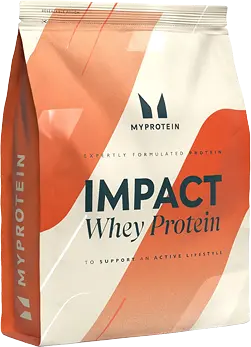Knowledge BaseYou're Questions Answered
BACK
Is whey protein powder safe?
Whey protein powder is widely used as a supplement to enhance muscle growth, improve recovery, and support overall nutritional intake. Generally, whey protein is safe for most people when consumed as part of a balanced diet. However, there are some considerations and potential side effects to be aware of.
Safety and Considerations of Whey Protein Powder
- Digestive Issues: Some individuals may experience digestive discomfort, such as bloating, gas, or diarrhea. This is often due to lactose intolerance, as whey is derived from milk1.
- Allergies: Those with a milk allergy should avoid whey protein as it can trigger allergic reactions, which can range from mild to severe2.
- Kidney Health: There is a common concern that high protein intake may strain kidney function. While research indicates that whey protein does not damage healthy kidneys, those with existing kidney conditions should consult a healthcare provider before increasing protein intake3.
Using Whey Protein Safely
- Moderation: As with any supplement, it is important to use whey protein in moderation. Adhering to the recommended serving sizes and not using protein supplements as your sole protein source can help mitigate potential risks.
- Balanced Diet: Incorporate whey protein as part of a balanced diet that includes a variety of protein sources along with ample fruits, vegetables, and whole grains to ensure a range of nutrients.
- Medical Advice: Always consult with a healthcare provider before starting any new supplement regimen, especially if you have pre-existing health conditions or are pregnant or breastfeeding.
Overall, whey protein is a safe and effective supplement for most people looking to enhance their diet and fitness routines, provided it is used thoughtfully and in conjunction with a healthy lifestyle.
Was this answer helpful? Let us know!
Like
References:
- Smith, L. (2019). Nutritional impact of lactose intolerance and its dietary management. Nutrients, 11(8), 1957.
- Rona, R. J., Keil, T., Summers, C., Gislason, D., Zuidmeer, L., Sodergren, E., & Sigurdardottir, S. T. (2007). The prevalence of food allergy: A meta-analysis. Journal of Allergy and Clinical Immunology, 120(3), 638-646.
- Martin, W. F., Armstrong, L. E., & Rodriguez, N. R. (2005). Dietary protein intake and renal function. Nutrition & Metabolism, 2, 25.
Add to this Answer
Related Questions

Disclosure
Your Answer
Do you have a suggestion to improve the answer? Please detail your suggestions and provide any references to information that may support your answer if available.
The content on this site has not been written, reviewed or endorsed by a medical professional. We assume no liability for the misuse of supplements and recommend you review the label of any product, as well as consulting with your health care professional.
We are a participant in the Amazon Services LLC Associates Program, an affiliate advertising program designed to provide a means for us to earn fees by linking to Amazon.com and affiliated sites.
We are a participant in the Amazon Services LLC Associates Program, an affiliate advertising program designed to provide a means for us to earn fees by linking to Amazon.com and affiliated sites.
© 2025 ProteinPowder.com






